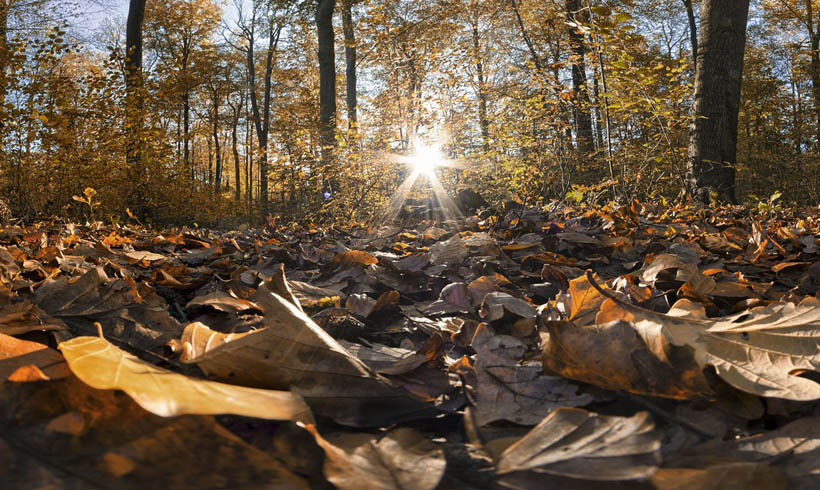5 Reasons Why You Should Mow Your Leaves Instead of Blowing Them

The explosion of autumn color is a special treat for all of us who live in the Northeast. The bright foliage also signals the time to break out our rakes and blowers to rid our properties of pesky fallen leaves.
The tradition of blowing our leaves and carting them away isn’t just a waste of time, money, and resources. In the process of removing our leaves, we are disrupting a cycle of which they are an important part.
1) Leaves fertilize your lawn
When leaves fall and decompose, they are returning nutrients to your soil! Worried about your leaves smothering your grass? You can mow them (usually one pass is enough) to mulch them into your lawn!
2) Leaves provide important shelter for wildlife
Leaves provide shelter for a myriad of invertebrates, including overwintering insects like woolly bear caterpillars, bumble bees and even some butterflies!
3) Removing leaves and having them trucked away is incredibly wasteful
Getting rid of our leaves involves using polluting leaf blowers and stuffing them into large leaf bags. These bags are then carted away by large diesel trucks that are not only a waste of fuel, but our tax dollars. Finally, we are removing the natural leaf litter that protects our flower beds, only to buy mulch in the spring to replace what we carted away.
4) Leaf blowers disturb our communities, wildlife, and lungs
Not only can leaf blowers be heard from far away, but they can also disturb wildlife. Also, in leaf blowers, two-stroke engines have been shown to emit contaminants comparable to large automobiles.
5) Save time!
Passing over your lawn once with a mower could take much less time than blowing, raking & bagging all of your leaves. In our fast paced world, who couldn’t use a little extra time?
We would like to thank our friends at Bedford2020 for making this information publicly available on their Leave Leaves Alone webpage.
Hear from us
Sign up to receive our bi-weekly eNewsletter


